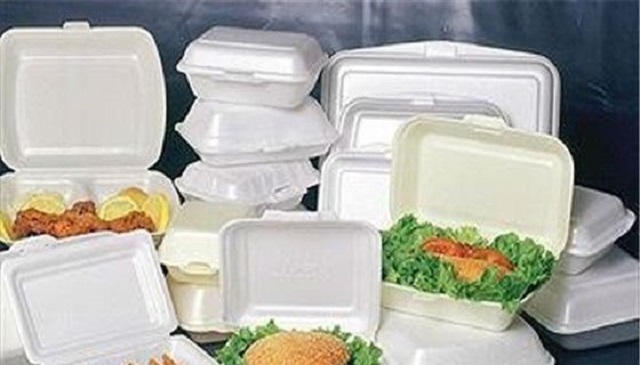Zimbabweans poisoning themselves out of ignorance

Stephen Mpofu
Nothing could have been more shocking for millions of Zimbabweans than to learn that they have for years been poisoning themselves by eating food packaged in expanded polystyrene or kaylite pregnant with gas that causes cancer.
The shocker came to light as the Environmental Management Agency (EMA) banned with immediate effect the importation and manufacturing of kaylite used mostly by fast food outlets in the packaging of takeaways which when heated transmits to the food a gas that causes cancer.
In almost all urban areas people, particularly workers and shoppers eat from kaylite containers, ignorant of their exposure to cancer. Away in homes, food kept in refrigerators is also exposed to contamination thereby causing a health hazard to consumers, not to mention environmental degradation when the kaylite packages are disposed of after use as litter, taking many, many generations to degrade.
What is probably just as shocking is that in an age of advances in communication technologies and reach, which have shrunk the world into a global village, with our country as part of that village, Zimbabweans should not be wallowing in ignorance as they do about the danger caused to their health by the use of expanded polystyrene which is used to grow plants, for instance, in other countries.
Yet, ironically, a small clique of people in Zimbabwe’s business community has been aware for years of the dangers to which they have been exposing the povo with their importation and subsequent use locally of kaylite.
For instance, EMA blew the whistle as way back as 2010 about the risks to which importers, local manufactures and eventual users caused to consumers with the use of kaylite, according to an authoritative source within EMA.
But the importers reportedly asked for time to put their act in order before replacing kaylite with bio-degradable paper such as boxes, egg trays et al, which become manure when disposed of.
That those suppliers continued to flood the country with polystyrene packaging material can only suggest that it was cheaper to import the plastic packaging material than to have it manufactured locally.
Which further suggests that because of their callous love of mammon, the money that they worship, the lives of Zimbabwean consumers became for these business people cheap, like kaylite imports. If that were not so local businesses would have acted with speed to EMA’s engagement with them on the matter in point more than six years ago.
The mind boggles.
In the circumstances, therefore, this pen feels that EMA should take immediate and effective steps to police its ban of the use of the health hazardous material so that those found breaching the ban are made to face the music of a fine of up to $5 000 or one year imprisonment. And why not ban altogether businesses that may continue to act in defiance of EMA’s intervention, in order to enforce compliancy?
In the countryside where more Zimbabweans live, EMA says it will ensure that its officers work with traditional leaders there to impose the ban and with that protect lives in the periphery where information is scarce as many people do not possess radio receivers or television sets, as do their counterparts in urban areas, to saturate villagers with the requisite, educational information to safeguard lives there.
EMA suggests, meanwhile, that people take their food in restaurants or other places that do not use polystyrene as food containers.
All in all, it now behooves on EMA and other stakeholders to mount a massive educational campaign countrywide on the dangers to which people expose themselves through the use of expanded polystyrene.












Comments